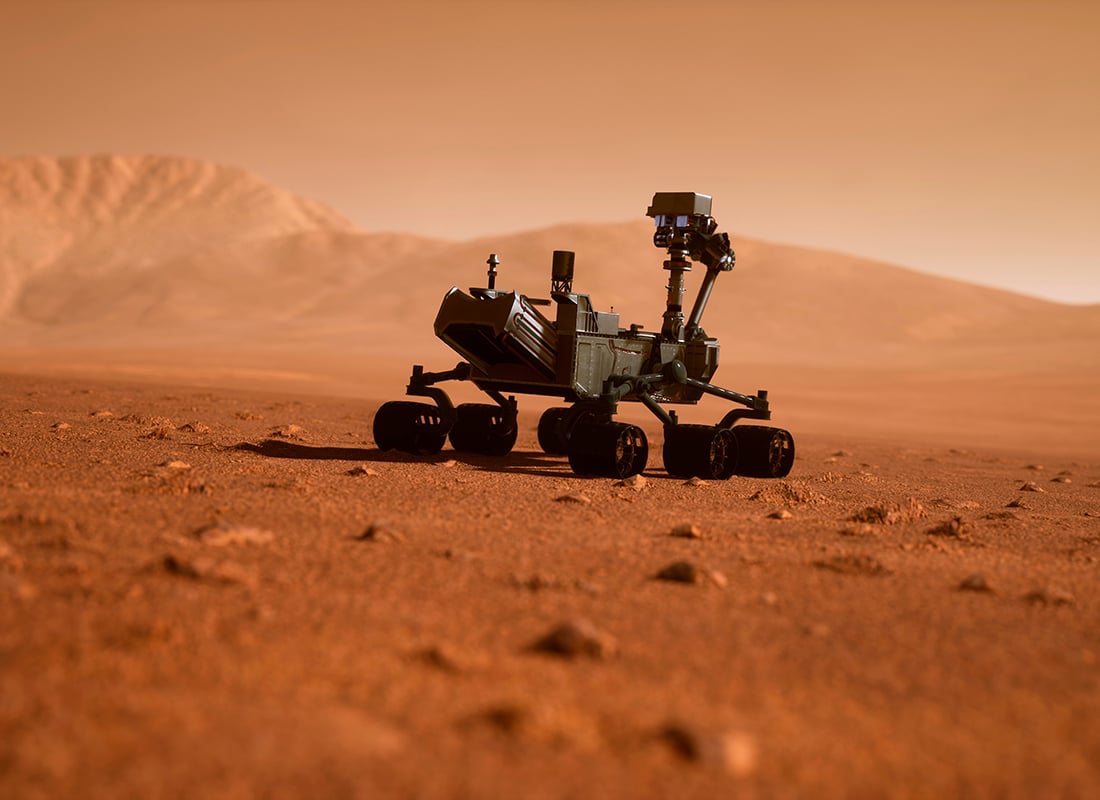The journey to and habitation on the red planet will pose unique physiological challenges that remain incompletely understood.
Speaker
Professor Damian Bailey
Agenda
5:30pm - Food and drinks
6:30pm - The talk and Q and A
7:30pm - Drinks and Networking
8:30pm - Event ends
Synopsis
The Martian atmosphere is an ultra-extreme environment: cold, devoid of oxygen and replete with carbon dioxide, seemingly incompatible with human life. Yet with the Terrae Novae Strategy 2030+, and NASA’s Artemis missions to the lunar surface and beyond, we are now looking towards the horizon goal of a crewed mission to Mars by the late 2030s.
The pursuit of space has always been a source of inspiration to explorers and physiologists alike, however the journey to and habitation on the red planet will pose unique physiological challenges that remain incompletely understood.
Astronauts will have to endure and need to be protected from multiple stressors including cosmic radiation, altered gravity and hypoxia, social isolation, circadian misalignment, long-duration confinement and inadequate nutrition for up to 1,000 days on a planet located ~55 to 400 million km from Earth. In this presentation, I will discuss the unique integrated physiological challenges posed by alterations in gravity and oxygen during spaceflight with a specific focus on the astronaut’s brain.
I will draw examples from terrestrial models of extreme physiology here on Earth to better understand how the astronaut brain can adapt and overcome environmental extremes that would otherwise be considered incompatible with ‘ordinary’ human life. Finally, I will provide a brief overview of the exciting work that the Life Sciences Working Group performs for the European Science Agency, highlighting some of the amazing opportunities.
About the speaker
 Damian M. Bailey embarked on a PhD in human physiology while working at the British Olympic Medical Centre in conjunction with the University of Oxford. Following postdoctoral training at the Universities of California San Diego, Colorado Health Sciences Center (USA) and Heidelberg (Germany), he returned to the University of South Wales where he is currently the Royal Society Wolfson Professor of Physiology and Director of the Neurovascular Research Laboratory.
Damian M. Bailey embarked on a PhD in human physiology while working at the British Olympic Medical Centre in conjunction with the University of Oxford. Following postdoctoral training at the Universities of California San Diego, Colorado Health Sciences Center (USA) and Heidelberg (Germany), he returned to the University of South Wales where he is currently the Royal Society Wolfson Professor of Physiology and Director of the Neurovascular Research Laboratory.
His research programme takes an integrated translational approach to investigate how free radicals and associated reactive oxygen/nitrogen species regulate oxygen delivery to the brain across the clinical spectrum of human health and disease.
He has published over 380 manuscripts and his research has attracted widespread media interest, international awards and fellowships from the Royal Society, Royal Society of Chemistry, American College of Sports Medicine and The Physiological Society for contributions to clinical neuroscience.
He is Editor-in-Chief of Experimental Physiology, Chair of the Life Sciences Working Group, member of the Human Spaceflight and Exploration Science Advisory Committee to the European Space Agency and member of the Space Exploration Advisory Committees to the UK and Swedish Space Agencies.
Our events are for adults aged 16 years and over.
BCS is a membership organisation. If you enjoy this event, please consider joining BCS. You’ll be very welcome. You’ll receive access to many exclusive career development tools, an introduction to a thriving professional community and also help us Make IT Good For Society. Join BCS today
For overseas delegates who wish to attend the event, please note that BCS does not issue invitation letters.
This event is brought to you by: IET Wales South East and South Wales branch














